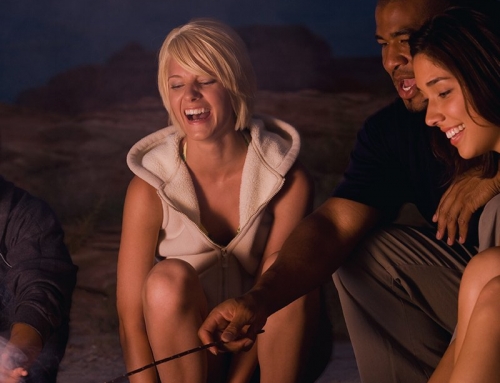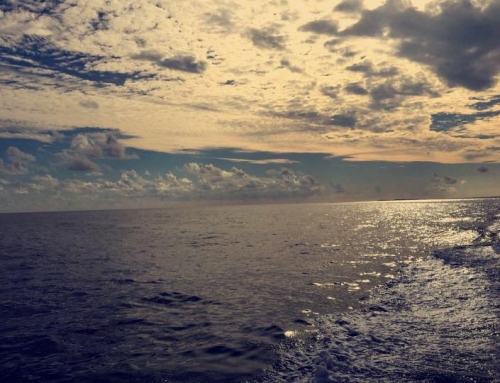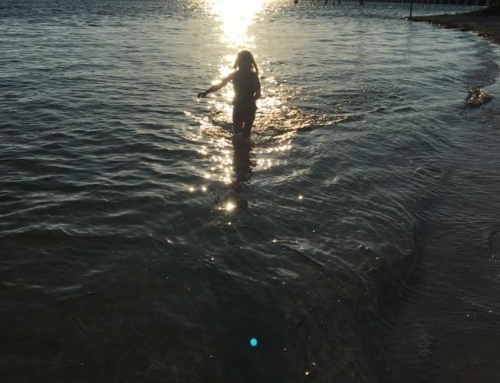Just before giving Moses the tablets of stone on Mt. Sinai, YHWH instituted a weekly day of rest, or a Sabbath. He wanted to make one matter particularly clear; working to prove one’s self- worth rather than resting securely in God’s work is the very heart of sin. YHWH said it this way; “Above all else, you are to keep my rest days, for these physical rests days are a symbol of the relationship between me and you. Keep them throughout all your generations, that you may know that I, YHWH, am the one who has set you apart and made you worthy.”
But the people of Israel had a very hard time remaining restful. Trusting YHWH and his plan proved again and again to be their biggest challenge. Faith – being willing to believe the truth about God, his actions, his love and intentions for them – proved to be immensely difficult.
Despite this, YHWH had mercy and patience. He wanted to commune with his people, so he created the Tabernacle and its sacrifices, ceremonies and rituals; a way for the presence of God to be right with the people at all times and a way for them to be regularly relieved from the guilt and burden of their continuing failure to trust God fully.
After spending a few months becoming familiar with the customs and sacrifices, YHWH told Moses it was time to go and take possession of the land he swore to give Abraham, Isaac and Jacob. And so the people of Israel started their trek to the Promised Land and YHWH went before them.
A few weeks of travel and they were there. As they set up camp, YHWH instructed Moses to send spies into Canaan. Moses selected twelve men and sent them into the land to discover all they could about the topography, the produce, the various people groups as well as their defenses.
After forty days of scouting, the spies returned. Joshua and Caleb, two of Israel’s best warrior- leaders and faithful followers of YHWH, reported first to the people. They could not have been more excited to enter and take the land. But the other ten spies could not believe their own ears. They rebutted much of what Joshua and Caleb’s reported calling them both “foolish dreamers.” They added, “There is simply no way that we can win. Their skill and experience is far beyond ours. Besides all that, these people are huge; they are absolute giants. We felt like grasshoppers next to some of these men.”
This was not enough for the spies. They went from tent to tent, sowing distrust and discord among the people. As they did the people grew more and more angry and distrustful of Moses and began to lament their plight, sobbing and crying in their tents. Eventually they gathered together to confront Moses to his face.
“Why have you brought us up out of Egypt, Moses? Weren’t things bad enough for us as slaves? You’ve marched us clear across the desert. And for what? So we can die in a foreign country? Clearly YHWH must hate us since he has brought us out here to die at the hands of these evil people.” With that, they began talking among themselves as to who should replace Moses in order to lead them back to Egypt.
At this Joshua and Caleb were enraged. They sought to win the crowd over, crying out, “No brothers, the land our God has given us is a beautiful and excellent land. If we obey YHWH and rest in his strength, as he has commanded us, surely he will deliver us from the hands of these new enemies, just as he delivered us from Pharaoh. Don’t be so foolish as to look to our weakness and distrust YHWH’s power and might to deliver us. And don’t be so foolish as to disregard his appointed servant, Moses. We must do as he has said. YHWH will certainly be with us. He has brought us here for this very purpose. He has promised to use us to defeat this evil nation and establish his very own nation in its place. We will be a nation that honors the true and living God who is YHWH. We ARE that nation. We ARE YHWH’s chosen people. We ARE his royal priests. All we need to do is listen to his commands and all will go well with us in this land.”
Following this rousing speech, the people demonstrated just how stubborn and faithless they could be. They called Joshua and Caleb fools and they rose up like a mob against them. Moses began to believe the crowd would kill these two faithful men, but suddenly, YHWH intervened. In the midst of the chaos, without warning, a portion of the Tabernacle in the center of camp – the place were YHWH dwelled – was lit with the brightest and most glorious light. Distracted and more than a little afraid, the riotous crowd dispersed. And Moses cautiously approached YHWH.
When Moses had entered the Tent of Meeting, YHWH said, “How long will these people treat me with such contempt? I have done miracle after miracle on their behalf as they watched. I never once asked for their help. Yet hear they are refusing to believe that I care for them? They have labeled my love for them as hatred. Perhaps we should start again, Moses. Should I make Moses the father of many nations?”
Moses begged God to show all the more mercy and patience. “No my Lord. Would it not be better to show your great strength as you always have, by being slow to anger and expressing great love and forgiveness? This is what you have been known for in the nations. Though these people don’t deserve grace and mercy, you have been pardoning their failures ever since the days of our fathers Abraham, Isaac and Jacob. What will the nations think of you if you destroy your people now? For the sake of your own majesty, for the sake of your glorious name, show yourself to be the God that I am confident you are. Forgive the sins of these people and all the nations will be amazed by you.”
YHWH replied, “You answer well Moses. I will not destroy them. I will forgive them yet again and will show that by leading their children, the next generation of Israelites, into this land. However, I have heard the grumbling of this generation for too long. How long does this wicked community think they can grumble against me? I have been patient with all their complaints but know this for sure, when I bring Israel into the land, not one responsible person (20 years or older) from this current generation will enter the land. Their bodies will fall and be buried in this wilderness. Every adult who saw my mighty works in Egypt and in this desert and has not followed me in faith will die before they reach the land. Joshua and Caleb are the exception. They have fully trusted me and spoke the truth about me. As for the rest, for 40 years they will wander until every last unbeliever dies. Only then will I bring Israel into the land. For they have falsely said, ‘YHWH HATES US!’ ”
Even before Moses left the Tent of Meeting, the ten spies who had doubted God fell ill and died. As news of their deaths traveled through the camp, Moses emerged from meeting with YHWH and shared the tragic news. “YHWH has given up on this generation,” he reported. “Every person over 20 years old, other then Joshua and Caleb, will die in the wilderness.” The people returned to their tents and mourned bitterly.
Many of the people continued to disregard YHWH and Moses. A man named Korah led a rebellion against Moses, claiming that God could speak through anyone, and that Moses was a fraud. When he refused to back down and put his faith is YHWH, Korah, his family and 250 of his followers disappeared into the earth as the ground opened up and swallowed them alive. Despite this display of YHWH’s displeasure, the next day, the entire congregation rose as one against Moses and Aaron, saying they were murderers, responsible for the death of all who had just died. With this, a plague broke out among the people. As people began to die, Moses sent Aaron out among the people with a portable censor on which he burned incense as an offering to make atonement for the evil of the people. As YHWH heard Aaron’s prayers, the plague stopped, but not before 14,700 people died. The survivors said, “Behold, we perish. We are completely undone. Are we all to perish?”
So it was that the conquest of the new land ended before it began.
Hundreds of years later, in a letter written to descendents of these Israelites, a grave warning was issued. It read, in part,
WHO WAS IT WHO REBELLED WHEN THEY HEARD YHWH’S VOICE?
WASN’T IT ALL OF THOSE WHO WERE BROUGHT OUT OF EGYPT BY MOSES?
AND WITH WHOM WAS YHWH ANGRY FOR FORTY YEARS?
WASN’T IT WITH THE ONES WHO SINNED, WHOSE BODIES FELL IN THE DESERT?
AND AGAINST WHOM DID HE SWEAR THAT THEY WOULD NEVER ENTER HIS REST, IF NOT AGAINST THE ONES WHO WERE DISOBEDIENT?
YOU SEE THEY COULDN’T ENTER BECAUSE OF THEIR LACK OF FAITH.
Indeed, this generation of Israelites remained rebellious and faithless for the rest of their lives. A journey that could have been accomplished in eleven brief days became 40 long years of hopeless wandering in the wilderness. Day after day the people blamed Moses and made his life wearisome. Yet he served them faithfully, almost without fail.
Moses will forever be known as God’s anointed servant used by God in the founding of the Nation of Israel. He was permitted by YHWH to view the Promised Land from Mount Nebo, across the valley from the City of Jericho.
In addition to his life and acts in Egypt and his 40-year ministry in the wilderness, it is widely believed Moses wrote the Old Testament book of Genesis, Exodus, Leviticus, Numbers and Deuteronomy, as well as the poetic prayer recorded in Scripture as Psalm 90. He died on Mount Nebo in Moab having never set foot in the Promised Land.
Introduction to The Story – Before There Was Time
Before there was humanity and before there was time, before anything of
Story 1 – Perfect Peace
In the beginning was God. God is a spiritual being and is not bound by space
Story 2: The Rise Of Self
God placed the man and woman in the beautiful garden, Eden. They enjoyed harmony with each
Story 3: Murder, Chaos & Destruction
The human’s betrayal of God in the Garden of Eden had led God to quickly eject
Story 4: A Merciful New Start
Seth’s family and Cain’s family lived very different lives. Seth’s offspring were raised to have a
Story 5: A Family for God
After the flood had receded, God instructed Noah and his family to go and fill the
Story 6: A Family Preserved
Favoritism Creates Enemies As the twin boys grew, Esau became Isaac’s dream son – strong, courageous
Story 7: A Nation for God
Long before Jacob came with his family to Egypt, he met God in a time of
Story 7A – The gods of Egypt
These are some of the major gods the Egyptians revered and all the signs Yahweh brought
Story 8: A New Betrayal
At midnight, YHWH struck down all the firstborn of Egypt. No Egyptian household escaped the plague.
Story 9: Faithlessness and Judgment
Just before giving Moses the tablets of stone on Mt. Sinai, YHWH instituted a weekly day






